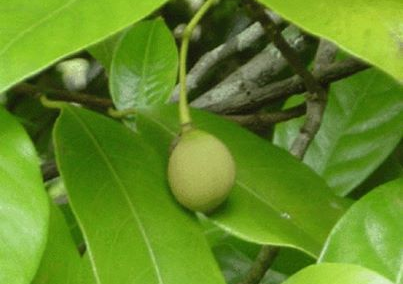Know Your Remedy: Nux Moschata (Nux-m)
 Who would have thought that common nutmeg, regularly used as a culinary spice, could treat symptoms such as confusion and sleepiness as a homeopathic remedy – but it does.
Who would have thought that common nutmeg, regularly used as a culinary spice, could treat symptoms such as confusion and sleepiness as a homeopathic remedy – but it does.
Common nutmeg is the nut of a tropical evergreen tree that grows to 15 metres in Indonesia, New Guinea, and the West Indies. The tree and nut is known by many names: Myristica fragrans, mace, magic, muscdier, muskatbaum, myristica, noz moscada, nuez moscada, and nux moschata. Nutmeg is used in herbal medicine to relax the muscles, reduce indigestion and flatulence, and relieve nervous disorders.
Common Uses
When the remedy matches the symptoms, Nux Moschata has the ability to treat symptoms of allergy, Alzheimer’ disease, colic, confusion and forgetfulness, dryness of mouth and constipation, narcolepsy, Petit mal, fainting, and vertigo.
Important
While above self-limiting or acute complaints are suitable for home treatment, see your healthcare provider if symptoms worsen or fail to improve. Chronic symptoms or complaints require a course of professional treatment to manage the changes in potencies and remedies that will be required.
From the Old Masters
Lippe says:
MIND AND DISPOSITION.
Changeable disposition ; hysteria with suddenly changing disposition, great drowsiness and disposition to faint.
Very irresolute, changes his intention continually.
Absence of mind ; vanishing of thoughts in reading, disposition to go to sleep.
Dulness of senses, thoughtlessness, with slowly returning consciousness.
Great inclination to laugh at every thing, especially in the open air.
Slowness of ideas ; loss of memory.
Idiocy ; craziness.
Delirium with violent vertigo, strange gestures, improper talk, with loud tone and voice and total sleeplessness.
GENERALITIES.
Great soreness of all the parts on which one lies.
Rheumatic pains (from cold damp air).
Wandering pains, only attacking a small spot and lasting but a short time, returning frequently.
Hysterical paroxysms.
Inclination to faint.
Convulsions (of children).
Great debility from the least exertion, compelling one to lie down with sleepiness.
Apoplexy.
CONDITIONS.
All the ailments are accompanied by drowsiness and sleepiness ; and inclination to faint.
Especially suitable for women and children.
Aggravation from cold, wet air or in cold, wet weather ; while lying on the painful side ; from cold food ; from spirituous liquors ; when riding in a carriage ; from water and washing ; from changes of the weather ; in windy (stormy) weather.
Amelioration in the room ; from warm air ; in dry weather ; from wrapping up warmly.
Hering says:
MIND.
Stupor and insensibility ; unconquerable sleepiness, and sleep.
Unconsciousness, after mental excitement, especially just before menses ; thoughts vanish, with fainting.
Gradual vanishing of thoughts, when reading, inclined to fall asleep.
Memory weak.
Gives answers wholly irrelevant to the question put to him.
Uses wrong words, during headache.
Surroundings seem changed ; fanciful, dreamy images ; does not recognize the known street.
Short time seems very long to her.
Delirium, violent vertigo, strange gestures, loud, improper talk, sleeplessness.
Delirium tremens, slowness of senses, imaginary fancies ; awakens and knows not where he is ; laughter, with stupid expression.
Laughter, everything seems ludicrous, talks loudly to herself.
Changeable mood, now laughing, again crying.
Weeping mood, gloomy ; fears to go to sleep.
Fickle, irresolute.
Slow action ; of senses ; of will.
From overtaxing mind ; sleepy, gastric ailments, hysteria.
TISSUES.
Bleeding from inner parts.
Dryness of inner parts.
Want to blood, anæmia.
Marasmus of little children.
Dropsy of outer parts.
STAGES AND STATES.
Children and women mostly ; also for the aged.
Nash says:
Stupor insensibility, unconquerable sleep; sleepy with most all complaints.
Excessive dryness of the tongue, mouth, lips and throat; no thirst.
And cold damp weather, getting wet, or washing; after eating (bloating); in room, dry weather.
Changeable humor; one moment laughing, the next crying.
More Information
Guidelines on which potency to use
Sources:
Textbook of Materia Medica by Adolph Lippe M.D. 1886 Publishers: AJ.Tafel
Constantine Hering. 1877. Condensed Materia Medica. Publishers: Boericke and Tafel
E. B. NASH. 1899 Leaders In Homoeopathic Therapeutics. Publishers: Boericke and Tafel







